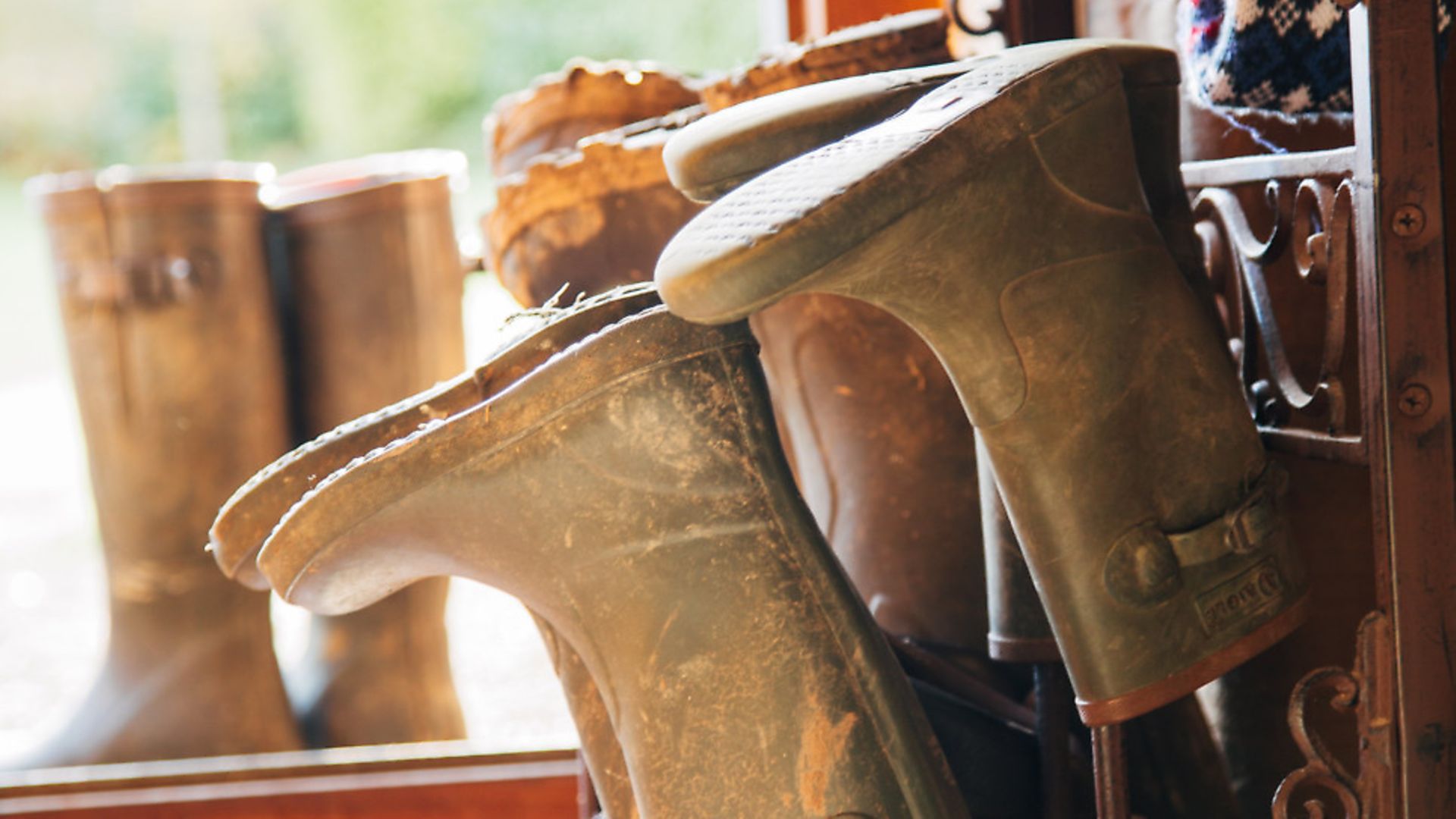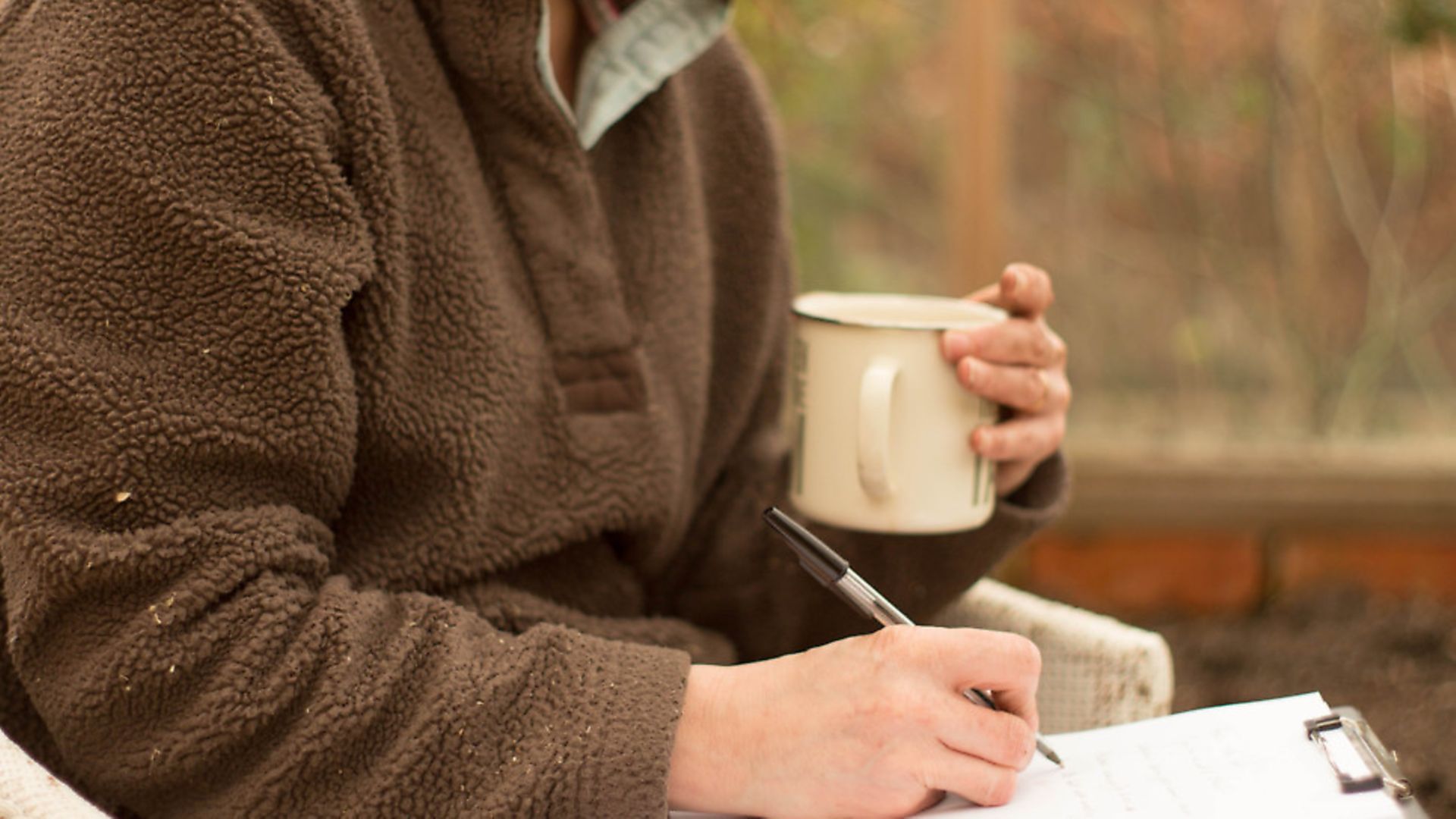Sam Gray offers some tips on time management on the smallholding

Writing a list of things to do has become something of a Sunday ritual. In my office I keep a clipboard with the main list of actions needed on the farm. It’s entirely handwritten (because I prefer it that way and remember it better) and consists of a page for every month of the year covering everything from planting new trees to designing ‘Middle Farm Pork’ stands for upcoming festivals. With a glass of wine in hand and a lit fire during these cooler months, I go about extracting a ‘weekly list’ from the ‘main list’. The choices, which are of course in addition to the general day-to-day running of the farm, are based on predicted weather forecasts, order of priority and, often, finances.
As the grass and days get longer, the festivals get nearer and the weeds start taking over, so too does the pressure of ‘the list’.
In recent weeks I have received more than a few emails from people starting out in smallholding, asking similar questions. How do you do it all? How do you actually fit it in to daily life? It’s a very good question!
When I first read about smallholding I was drawn into a life living off the land, thoughts of creating beautiful vegetable and flower gardens, chicken coops, pigpens, bottling my own cordial, chutneys and jams… the list was endless. In my head I was in paradise and absolutely sure that one day I’d be a dab hand at making soap, butter and beer. John Seymour has a lot to answer for! Way before pigs and sheep it was hard enough managing two toddlers, three holiday cottages, too many chickens and a building site. I’d forgotten that John Seymour had a whole team of people to help him. Stress built up, especially as the children were so young, in need of my attention and completely unable to help. The garden grew in all the wrong directions and much of what I’d hoped to achieve had not been as easy or indeed as pleasurable as I had imagined it would be. By the end of year four I started to write notes, all the while wondering why it wasn’t as fun as I’d hoped. Writing my book Doing It In Wellies was at first a way of releasing those concerns. By getting things down on paper it reminded me of why I had wanted to live like this in the first place, and that was how I started to fall in love all over again, but this time falling in love with something else – the reality instead of the dream. Smallholding has been more a calling than a career choice and after years of practice I now know that I’m exactly where I should be, doing exactly what I need to be doing.

Take some tips
So these tips are how I stay in love with smallholding:
1. Eat well
A dairy farmer friend of mine once told me that if you want to stay healthy, take notes from a vet! You may laugh, but I’m not sure it’s that far from the truth. A vet’s priority checks are diet and environment. We wouldn’t dream of feeding sheep and cattle afternoon cake and crisps or throwing sugary sweets and fizzy drinks into the pigpens! In my opinion nothing comes before health in the world of smallholding. Without it you can do little or nothing. Eating well has helped maintain energy levels I couldn’t have imagined and allowed me to do the job I love.

2. Sleep well
Early to bed and early to rise! Farm animals are not the only ones that do better with routine. Personally, a hot bath and some quiet time helps rest the aching bones and joints at the end of most days, sleeping better and staying strong in mind.
3. Don’t take on too much in the first place
I started with chickens and vegetables, took on pigs two years later and sheep a few years after that. Despite all those wonderfully inspiring ideas of how to produce things to sell, cook or grow for the family I know that what I have at Middle Farm already requires a full-time commitment, seven days a week. Apart from the occasional helping hand from the kids it’s only me here so I have to keep reminding myself that having cattle would not be a good idea…yet!
4. Balance
Running two businesses from home as well as a school run that cuts the afternoon in half, requires me to be superefficient with the time I have. Splitting the ‘to do’ list into those that directly bring in money, i.e. selling pork, lamb or cottage bookings, and those that indirectly contribute or save money, such as repairing, reusing or day to day farm jobs, can help to keep a balance. That’s not always easy to do, especially as running a business from home requires admin that can take away from the necessary time spent outside. I try my best to be mindful of the split between the two, not letting one dominate the other, otherwise frustration takes over. Evening admin is common practice in my house!
5. Break it down into chunks
Little lists from big lists as described above definitely work for me and are a great way of prioritising the week ahead without giving myself too much to do.
6. Vary the jobs
It was my osteopath many years ago that told me to vary manual jobs every half an hour. Although not always possible, I try and live by that even now to avoid back strain. Rather than cleaning out all the pigs in one day I choose a pen a day and sometimes even split it in two while they’re eating in the morning or afternoon. Same goes for working in the vegetable garden, small chunks at a time offers variety and stems the boredom.
7. Don’t stress the small stuff
How many times have I walked around my garden, fences or yard thinking I must do that next, I must do that when I’ve finished the other one, I mustn’t forget to do that too! It builds up and up until you realise it will never be finished… and that’s the point. Smallholding is a lifestyle choice, there will always be a list of things to do so I’m learning (slowly) to do what I can and leave the rest.
8. Time with your animals
There is no doubt that farm animals are very calming, indeed they hate being stressed, but it’s all too easy to make the only time you spend with them feeding and mucking out. I find that time grooming (them, not me) is a great way to relax and build a trusting relationship, particularly with breeding stock.
9. ‘Stop and smell the roses’
Walter Hagen was right. How easy it can be to forget to enjoy this way of life. Growing, nurturing and passing on survival skills is a huge privilege and one that we may need more of in the future. I hope that you can, and do, enjoy yours as much as I do mine.
? Sam Gray has smallholding in Shropshire
? Her book, Doing It In Wellies is available at www.middlefarmpress.com
? Holiday cottages: www.middlefarmcottages.co.uk
How easy it can be to forget to enjoy this way of life.
Image(s) provided by:
Sam Gray
Sam Gray
Sam Gray







